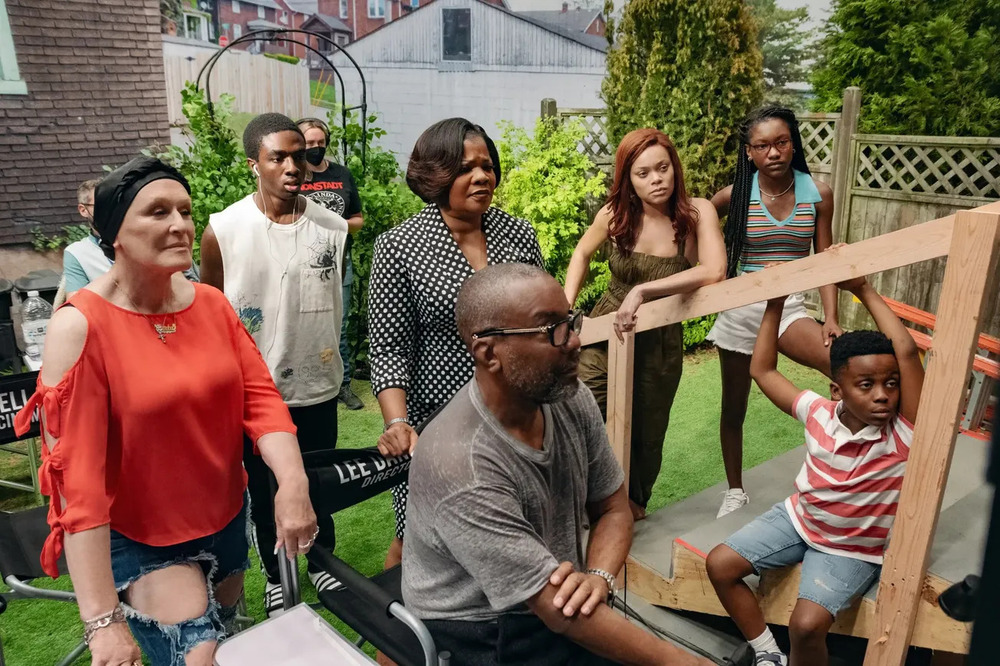Review: ‘The Deliverance’ brings fresh Black faith to horror genre
Lee Daniels‘ new release “The Deliverance” is a multi-faceted horror movie based on the true story of a family’s encounter with a demon-infested home in Gary, Indiana. When I heard about the movie, I’d already made up my mind that I wanted to watch it. I am certainly a horror movie fanatic. Yet what really […]



Lee Daniels‘ new release “The Deliverance” is a multi-faceted horror movie based on the true story of a family’s encounter with a demon-infested home in Gary, Indiana. When I heard about the movie, I’d already made up my mind that I wanted to watch it. I am certainly a horror movie fanatic. Yet what really fascinated me was that we were finally getting a faith-based supernatural film from the perspective of the Black community. In addition, I was curious to see what other themes Daniels would bring into the narrative.
The plot centers around Ebony Jackson (Andra Day), a mixed-raced woman and struggling alcoholic who is abusive to her children. Her White mother, Alberta (Glenn Close), serves as something of a support system for Ebony and her children as they try to get settled into their new home. It becomes apparent early on in the movie that the characters have both metaphorical and literal demons to conquer. Ebony often lashes out in a drunken rage at her children, and Alberta sometimes doesn’t understand Ebony and her struggles. In addition to classic supernatural horror, Daniels zooms in on the day-to-day experiences faced in the Black community that are just as traumatizing as a haunted house. He ties in generational trauma, interracial conflict within families, sexual abuse, systemic racism in medicine and healthcare, and disparate outcomes in the housing market.
In one particular scene, Ebony and Alberta take the kids to the doctor as the supernatural phenomena ramp up in the house and in the children’s bodies. A frantic Ebony pleads with the doctor for help but the doctor deems her aggressive and tells her to calm down. Alberta, feeling embarrassed, agrees with the doctor that Ebony is acting aggressively and irrationally, forcing her to leave the doctor’s office. Ebony then explodes on her mother in the parking lot about how she is unwilling to really be there for Ebony when it comes to the issues she faces as a Black woman.
I was glad to see that Daniels did not rely on jump scares to keep the audience on the edge of their seats, nor did he fall into the recent (and tired) trope that paints religion as nothing more than a futile, traumatic experience. The film industry has cranked out several movies over the last three years that paint Christianity in a bad light, often attempting to sympathize with the Black community in doing so. The trend for the past three years has had White directors and producers casting Black characters in roles of people who do not have faith or are notably anti-religious (see Storm Reid in “The Nun II”). However, this narrative that religion is bad does not resonate with the majority of the Black community, in which 97% of African Americans believe in God or a higher power, with almost 80% identifying as Christian.
Despite Daniels’ commitment to portray Black spirituality onscreen, the movie has gotten negative reviews from many White film critics who don’t see the value in making a movie with positive religious themes. As I thumbed through most of the secular reviews of the film, I couldn’t help but notice how most of them failed to address the positive faith-based themes of the movie, instead choosing to focus on how it is based on true events, or outright exempting Jesus from the discussion altogether. It was refreshing to see Daniels actually portray something on screen that most Black Americans can identify with in a horror movie: the importance of their faith.
In the final showdown between Ebony and the demon possessing her son, she must confront her feelings of abandonment by God and have an encounter of love with him that snaps her out of her fear. Daniels did a great job portraying how sometimes feelings of abandonment during traumatic experiences or events in life can cause people to lose faith in God. He also did a great job portraying the practical difference faith makes in a person’s life.
The acting all around was great, and the only bone I had to pick with the film was its seemingly anti-Catholic theology at some points. However, if you want to watch a good scary film that truly builds up chilling tension while likely relating to some of your life experiences, I would highly recommend it.














